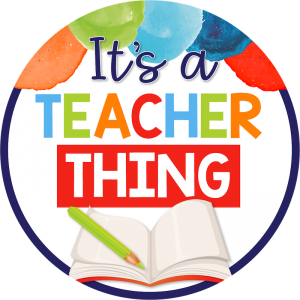Teaching can be overwhelming, especially those first few years. As a new teacher, it’s crucial to simplify as much as possible to have a life outside the classroom. Use the resources around you, especially your mentors. I still learn from others after 20 years. I love blogs and blogging for this reason. There are so many fabulous ideas out there. I’m happy to share what I’ve learned. Here are my top tips for new teachers:
#5. Familiarize yourself with the standards
Read through them several times, and keep them handy. The better you understand what’s expected, the better you’ll focus your goal and be able to integrate multiple standards into a lesson or unit. They are fairly straight forward, and there are resources out there by districts and states who’ve already “unpacked the standards”. This means they’ve torn them apart and come up with ideas for how to target each item. North Carolina and New York both have fabulous resources. Additionally, let your students know what they are expected to be able to do. Remind them of the focus on a daily basis by making the learning goal visible.
#4. Reflect on upcoming and completed lessons
Go through the lesson you’re planning to teach and analyze its clarity. Are you clear about the content? Where might students get confused? Ask a peer if they understand your lesson. Try to see where issues or confusions might arise BEFORE you teach the lesson. Give yourself time to sit and think. If you don’t completely understand the content, ask the veteran teachers around you for help.
If you’ve already taught the lesson, make a note of what did and didn’t work. If you realize that you’ve made a mistake in the content or with the method you used, let the class know. Apologizing and admitting a mistake is a fabulous opportunity for students to see that adults still make mistakes and learn from them. You are an example of having a growth mindset-you have discovered what doesn’t work and you learned from the experience. There’s always more to learn. This is what we should be teaching our students.
#3. Recognize that you can’t be a master of everything
If you try, you will work yourself to the point of exhaustion. Pick one or two things and dig in deep, but be okay with the fact that there is just not enough time in the day to master all the content. This will come over time. Look at what the standard says students are supposed to be able to accomplish. Design your unit with this in mind. Devise your assessment first (with the knowledge that you may need to change this before students are ready to take it), and then work backwards. I spent a lot of time learning content my first few years, and I’m still learning. This is one of the best things about being a teacher!
#2. Don’t grade everything
Much of the work students complete is practice. Be okay with using the recycling bin, a student file, or letting students keep this work. Additionally, you don’t need huge summative tests to assess knowledge. There are many ways to glean what a student understands: quick responses on whiteboards or paper, walk around the room and look at their work, listen to conversations, exit slips, etc.
Keep a note page or grade sheet with you as you assist students. If the class is working on a larger unit, have a project rubric with you as you help students. This way you can assess pieces of bigger projects as you consult with the student, and you are not overwhelmed with enormous stacks to grade when the final projects are done. If you learn to utilize your time wisely, much of grading can happen during your day.
#1. Engage your students and be aware of your audience
Look at your students as you teach. What are the expressions on their faces? What does their body language tell you? Have you engaged them from the beginning? If not, consider adding a hook at the beginning of each lesson. All students are not inherently interested in the content you must teach, so show them it’s interesting. Use a video, pose an intriguing question, have a mystery object in a sealed box that they’ll see the next day, dress up as a character that’s somehow related to the lesson, etc. Give them a teaser the day before to increase anticipation.
If you haven’t read Teach Like a Pirate, I’d recommend this quick read. It focuses on how to hook student interest and make learning more exciting. If your lesson is engaging, you’ll have fewer behavioral issues and students will be more receptive to learning.
Be aware of how much you use your voice. If students hear you talking a lot, there’s a likelihood that they’ll tune you out. Use hand signals or wait time (don’t talk until everyone else has stopped) to get the class quiet. If you use your voice sparingly, students will know that when you do speak it’s important to listen.
Don’t forget to include lessons that you love. Students pick up on your enthusiasm. I love literature circles, and I make them an event we all look forward to. Check out Literature Circles: Everything You Need To Know for more information.
Teaching gets easier the more years you do it. It’s not a stagnant profession, so be ready for change. Still, the important things stay the same: show your love for teaching, show that you care about your students, and show that you are a lifelong learner.
Here’s to a great year,

Photos by Z is for Zebra and Strawberry Shake
I Teach. What’s Your Superpower?














Thanks for these great tips.Watching body language is such a good indication of student reactions, it tells you so much about them. Not grading everything is another good one. You can even have students grade some homework papers. I used to choose a student to read answers out loud. They love doing this.
Your TIp #3 is soo true. During my first year of teaching, I focused on reading. I worked on long-term planning in math during my second year. Science came next in my third year. Science kept coming up during subsequent years…
-Vicky
These are great tips Marcy – and yes, even after years of teaching, there is still more to learn!